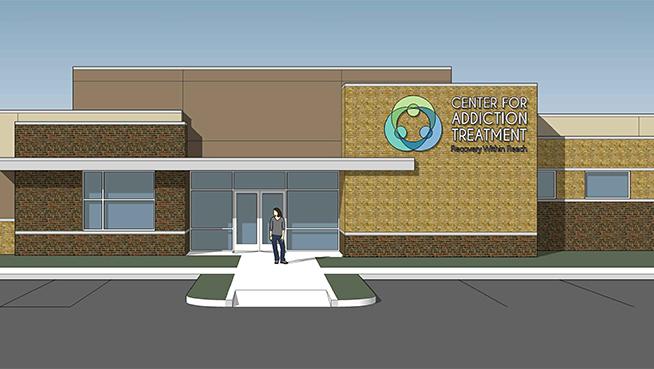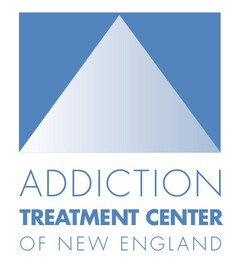Navigating the Journey of Detoxification in the Comprehensive Dependency Treatment Program
Getting started on the path of cleansing within the framework of a detailed dependency treatment program is a crucial phase in the trip in the direction of recovery. The procedure of detoxification holds a considerable duty in breaking the physical dependancy on substances and preparing the person for the subsequent phases of treatment. However, navigating via detoxification is not merely a matter of physical cleaning; it entails a complex interaction of emotional, emotional, and social aspects that require careful factor to consider and assistance. As people come to grips with the difficulties of withdrawal signs and symptoms and the unpredictabilities that exist ahead, having an organized plan and a durable assistance system in place becomes critical. In this conversation, we will certainly check out the diverse elements of detoxification within the detailed addiction treatment program and clarified the crucial parts that form this transformative journey towards healing.
Relevance of Detoxification in Recuperation

Detoxing sets the foundation for the remainder of the addiction therapy program by preparing the individual for further therapy and therapy. By cleansing the body of compounds that have been clouding judgment and influencing habits, detox allows patients to approach their recuperation with a more clear mind and stronger focus.
Moreover, cleansing helps in managing the possibly extreme withdrawal signs and symptoms that may arise when drug or alcohol usage is stopped. Physician carefully keep track of patients during detoxification to ensure their security and offer essential assistance. Via this procedure, individuals can start their journey towards sobriety with a maintained mental and physical state, increasing the probability of a successful healing.
Comprehending the Detoxification Process
Detoxing, a basic part of dependency treatment programs, includes a structured procedure focused on safely removing damaging materials from the body to help with a successful recovery trip. The detox process normally begins with an assessment to examine the individual's compound use history, physical health and wellness, and mental well-being. This evaluation helps health care specialists identify the most ideal detox strategy customized to the individual's requirements.
Throughout detox, the body undergoes withdrawal as it adapts to the absence of the substance. Withdrawal signs and symptoms vary depending on the sort of material used, the period of use, and private elements. Medical guidance throughout detoxification is important to take care of withdrawal signs and ensure the person's safety and security and comfort.

Managing Withdrawal Signs And Symptoms

Medicines might be made use of to alleviate details withdrawal symptoms and lower pain. As an example, medicines like methadone or buprenorphine can help take care of opioid withdrawal symptoms, while benzodiazepines may be utilized for alcohol withdrawal. It is important for health care service providers to thoroughly keep an eye on the person's action to these drugs to ensure their security and performance.
Along with pharmacological treatments, supportive therapies such as counseling, peer support teams, and holistic techniques like mindfulness reflection or yoga exercise can help people cope with the mental and psychological obstacles of withdrawal. By attending to withdrawal signs and symptoms comprehensively, doctor can enhance the cleansing experience and support individuals on their journey to healing.

Support Equipments During Detoxification
Assistance systems play a vital function in giving social and emotional aid to people undergoing detoxification in dependency therapy programs. Throughout the detoxification process, individuals typically experience a variety of emotional and physical withdrawal symptoms, making this stage tough - Addiction Treatment Center. Having a solid assistance system in area can considerably affect the person's capacity to browse with detoxification successfully
Household have a peek at this site participants, friends, assistance groups, and health care specialists are essential parts of the assistance system. Family members members and friends can provide encouragement, understanding, and a sense of belonging throughout this tough time. Assistance teams give a system for people to link with others that are undergoing comparable experiences, using read more a sense of community and shared understanding. Medical care professionals, consisting of specialists, medical professionals, and therapists, play an important duty in keeping track of the person's development, giving clinical support, and using guidance throughout the detoxification procedure.
Looking Ahead: Life After Detox
Having effectively finished the cleansing phase, people in dependency treatment programs currently concentrate on preparing for the difficulties and possibilities that lie ahead in their trip towards recovery. Life after detox marks an essential change duration where people need to remain to build on the development made throughout detox to maintain their soberness. It is vital for individuals to acknowledge that the journey towards recuperation is ongoing and calls for dedication, commitment, and a readiness to embrace change.
One trick element of life after detoxification is the advancement of dealing devices to handle triggers and desires that may emerge. This might entail learning brand-new skills, such as mindfulness methods, cognitive-behavioral strategies, and stress administration methods, to browse difficult scenarios without considering substance usage. Additionally, people are motivated to proactively participate in ongoing treatment, support system, and aftercare programs to strengthen their support network and get guidance as they browse the intricacies of life post-detox.
Final Thought
Finally, detoxing is an important element of the comprehensive dependency therapy program. Comprehending the detox procedure and handling withdrawal symptoms are crucial actions towards recovery. Assistance systems play a considerable role throughout this tough trip. Addiction Treatment Center. Looking ahead, life after detoxification holds pledge for a healthier, substance-free future. It is crucial to recognize the value of detoxification in the procedure of overcoming addiction and moving in the direction of a life of soberness.
Clinical supervision during detox is crucial to manage withdrawal signs and symptoms and make certain the individual's safety and convenience.
By comprehending the detox process and its significance in damaging the cycle of dependency, individuals can get started on a course in the direction of lasting recovery.
Throughout the detox process, individuals often experience a range of psychological and physical withdrawal signs, making this stage difficult. Medical care specialists, including counselors, doctors, and therapists, play a critical role in keeping track of the person's development, offering medical assistance, and click to read offering support throughout the detoxification procedure.
Life after detox marks a crucial change duration where people must proceed to develop on the progress made throughout detox to maintain their soberness.